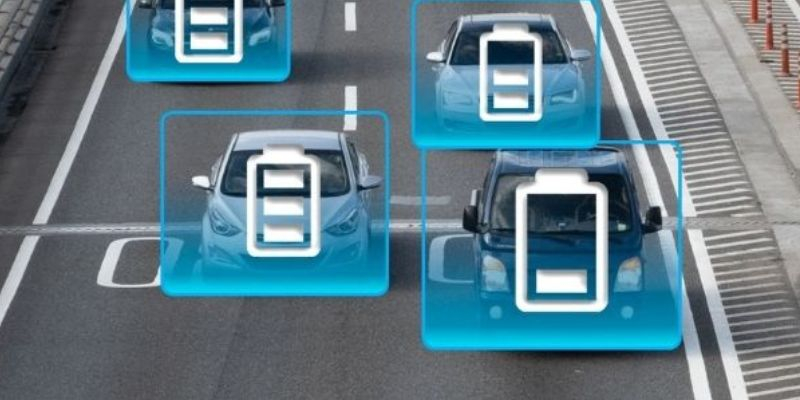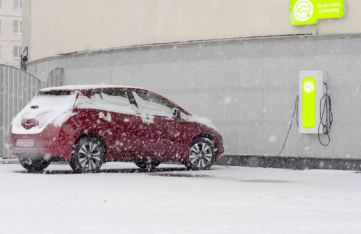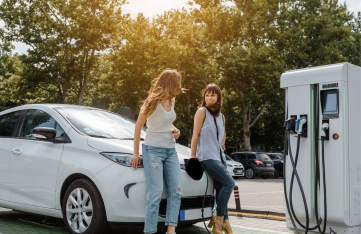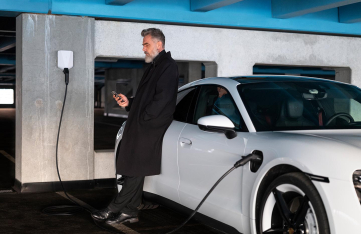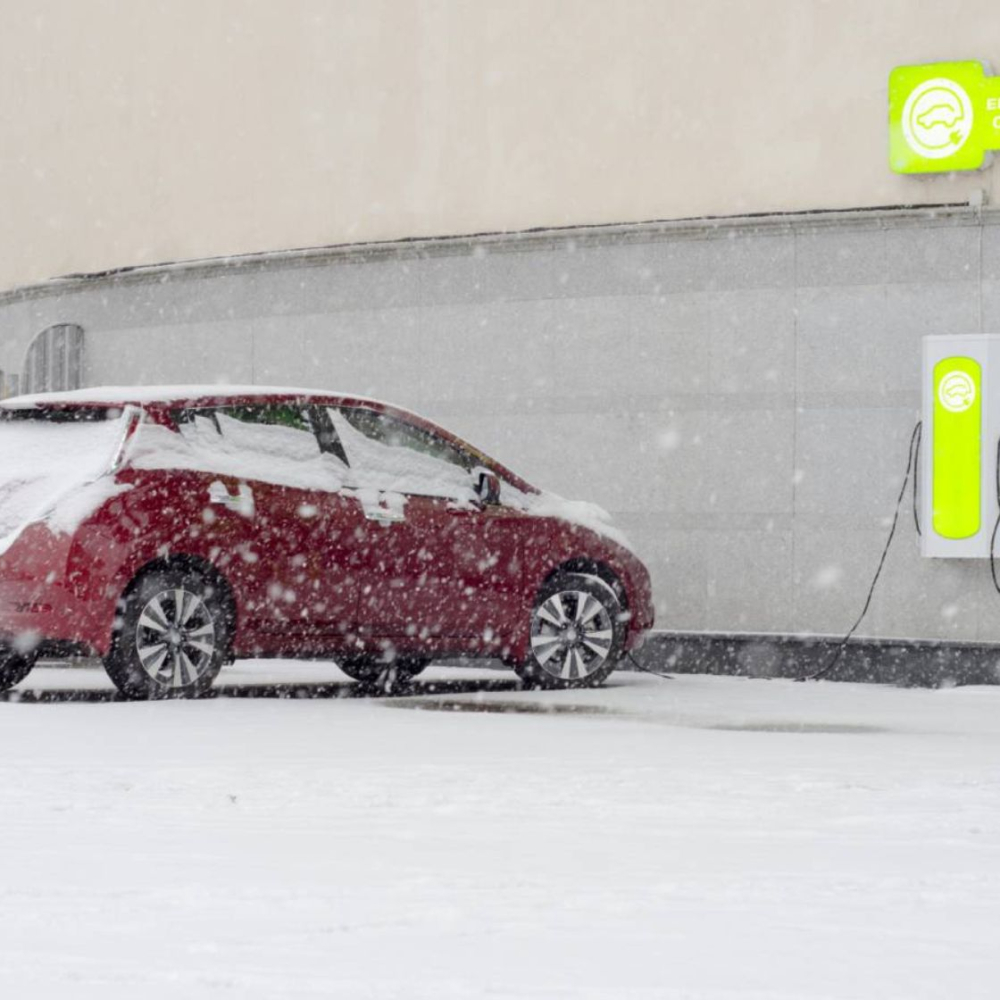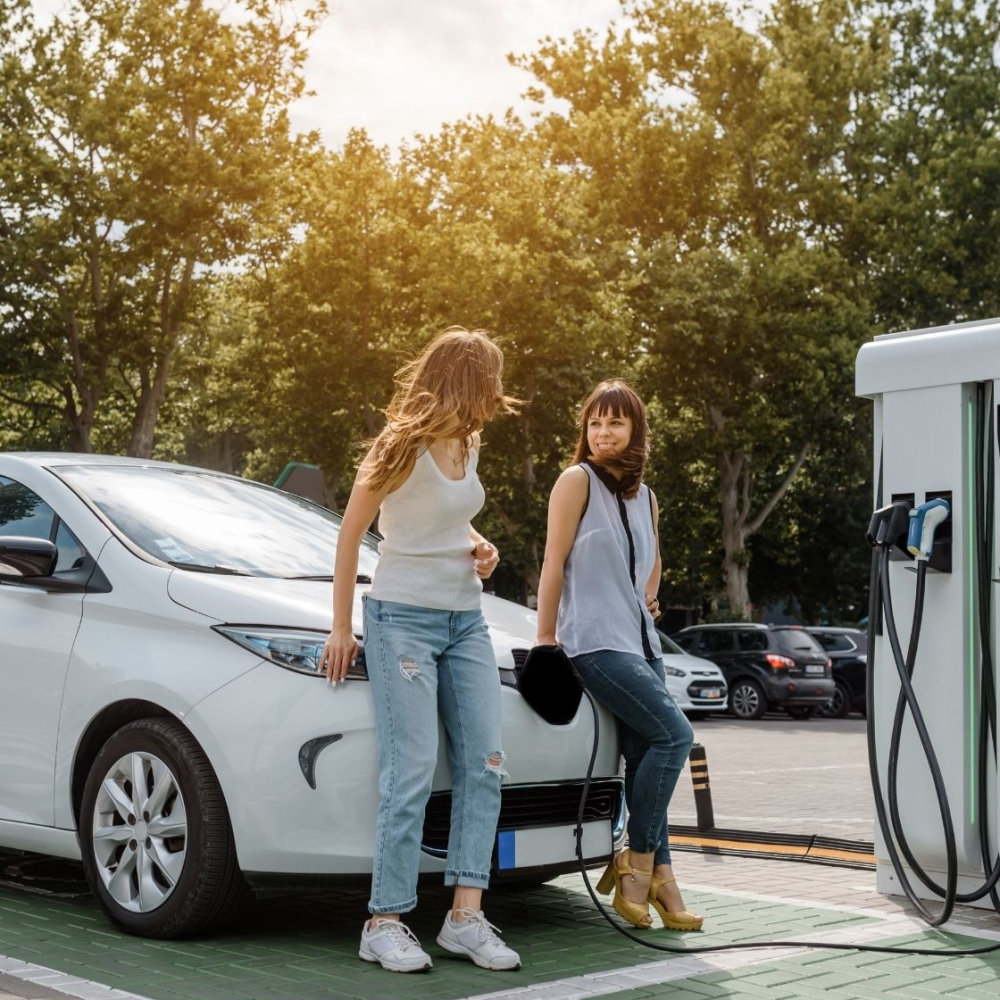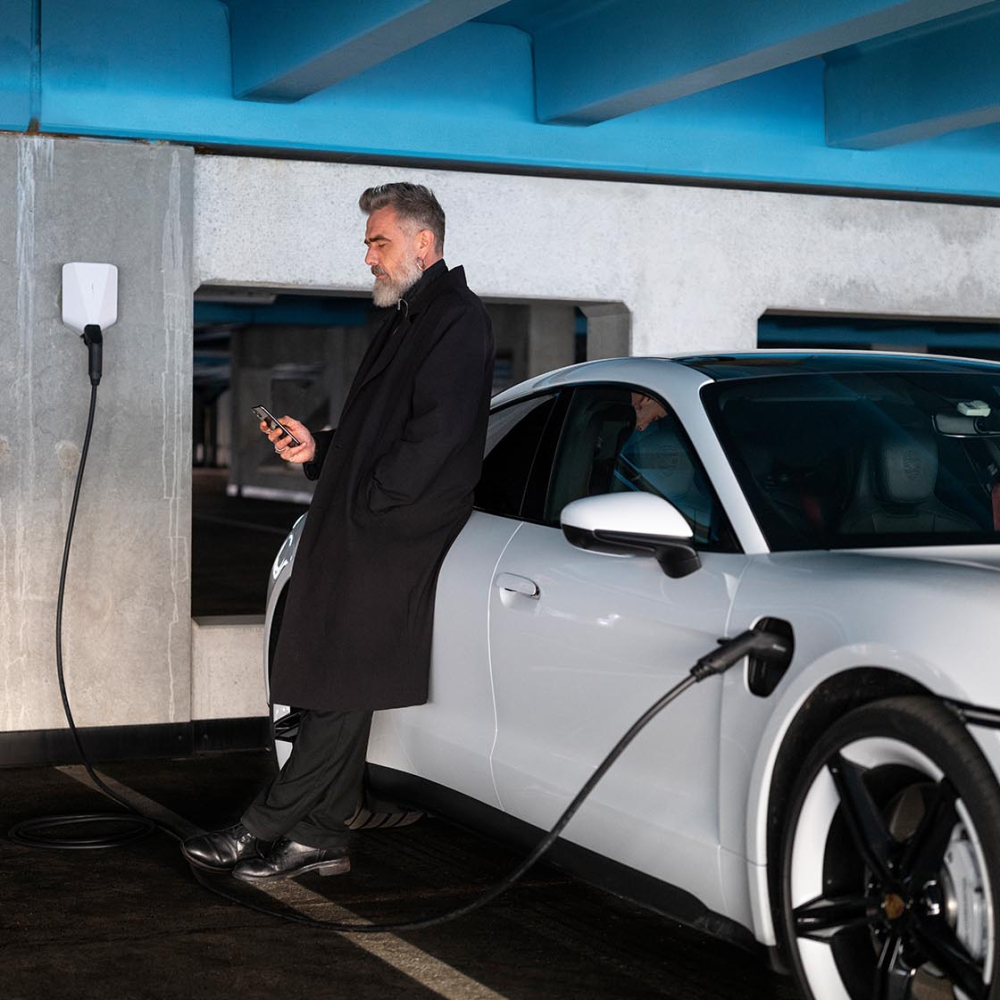10 Electric Car Myths – Busted
From 2030 new petrol and diesel cars will no longer be sold in the UK, so before long, it’s likely many of us will be behind the wheel of an electric vehicle.
As we consider our driving future, there are a number of misconceptions about EVs that are still making people think twice – we are here to bust these myths!
1. EVs are not environmentally friendly because electricity comes from coal
20-years ago, maybe, but since 2017 the generation companies have been cleaner every year. 2019 saw record levels of solar and wind generation, and in May 2019 we actually went 437 hours without burning any coal – the longest period ever of no coal being burned to generate power. The easiest way to ensure your fuel is green, is to install your own Solar PV.
In the last 12 months coal made up just 1% of the UK’s Energy Generation Mix, and renewables made up over 33%. The easiest way to ensure your fuel is green, is to install your own Solar PV and battery storage solution.
UK Generation Data – Aug 2022 – Aug 2023 (source data: Energy Dashboard – real time and historical GB electricity data, carbon emissions and UK generation sites mapping)
| Source | GW | % | TWh |
|---|---|---|---|
| Gas | 11.2 | 35.40 | 99 |
| Solar | 1.4 | 4.40 | 12 |
| Coal | 0.3 | 1 | 3 |
| Hydro | 0.3 | 1.10 | 3 |
| Wind | 8.8 | 27.90 | 78 |
| Misc | 0.3 | 0.90 | 3 |
| Imports | 3.2 | 10.10 | 28 |
| PHS | 0.2 | 0.60 | 2 |
| Biomass | 1.5 | 4.60 | 13 |
| Nuclear | 4.4 | 14 | 39 |
| Total | 31.6 | 100 | 280 |
| Source | GW | % | TWh |
|---|---|---|---|
| Gas | 11.2 | 35.40 | 99 |
| Solar | 1.4 | 4.40 | 12 |
| Coal | 0.3 | 1 | 3 |
| Hydro | 0.3 | 1.10 | 3 |
| Wind | 8.8 | 27.90 | 78 |
| Misc | 0.3 | 0.90 | 3 |
| Imports | 3.2 | 10.10 | 28 |
| PHS | 0.2 | 0.60 | 2 |
| Biomass | 1.5 | 4.60 | 13 |
| Nuclear | 4.4 | 14 | 39 |
| Total | 31.6 | 100 | 280 |
2. EVs are too expensive
As with traditional fuel engine vehicles, the cost of running an EV varies depending on the model, make, and specifics of the vehicle. There is some great news – electric vehicles are likely to cost you less over the course of ownership. Electricity costs much less than petrol or diesel and electric cars require less maintenance than an internal combustion engine (ICE).
Additionally, there are several incentives available such as government grants or schemes, Vehicle Excise Duty discounts and exemption from Fuel Duty.
For businesses with fleet cars, those making the move early to EV have seen 20-25% savings because their electric fleet vehicles are more efficient, use more affordable fuel, and cost much less to maintain, and that is before tax incentives.
The more positive news is the Bloomberg New Energy Finance (BNEF) study, commissioned by Transport & Environment (T&E), found that EVs will be as cheap to produce as petrol vehicles from 2026.This could have been sooner, but recent global events have impacted both the automotive industry and the mining industry.
3. EVs don’t have enough range. You can’t travel very far before running out of electricity
Ranges on EVs vary depending on budget and battery size, you can purchase vehicles with ranges from 100 miles to ranges in excess of 400 miles. And, like the internal combustion engine improved over the past 100 years to dominate the automotive world, EV motors will become more efficient, and the battery technology will improve.
To put this into perspective my Dad’s 1963 Rover 110 (P4) would average 18mpg, my old 2000 Audi A3 would average around 38mpg, technology moves forward quicker with scale. Over 70% of UK drivers actually drive less than 25 miles a day. Take into consideration over 70% of UK drivers drive less than 25 miles a day.
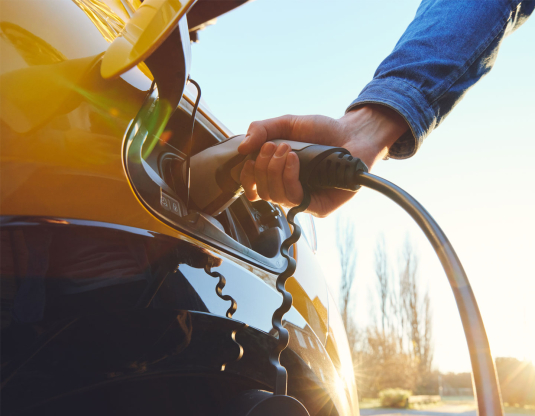

4. EVs are slow
They are anything but. In fact, Tesla’s upcoming roadster will have a top speed in excess of 200mph and a 0-60 in under 1.9 seconds, comparing that to an ICE vehicle the Bugatti Chiron can only do a 0-60 time of 2.3 seconds. It doesn’t have to be supercar money though, even Tesla’s model 3 performance will hit 60mph in 3.1 seconds, that’s 6/10ths of a second quicker than a 2019 Aston Martin DBS Superleggera.
5. EV batteries don’t last long and will eventually end up in landfill
The majority of electric vehicles have an 8 year/100,000 mile warranty on the batteries. Most manufacturers predict their batteries will last 10-20 years before replacement. Once removed from the vehicle it doesn’t end there, because of the size of EV batteries they can be easily repurposed as energy storage devices once their vehicle life is complete. And they can be dismantled and their components recycled.
An ex demonstrator 2014 Tesla Model S recently tipped over the 1 million mile mark, which puts a lot of ICE cars to shame.
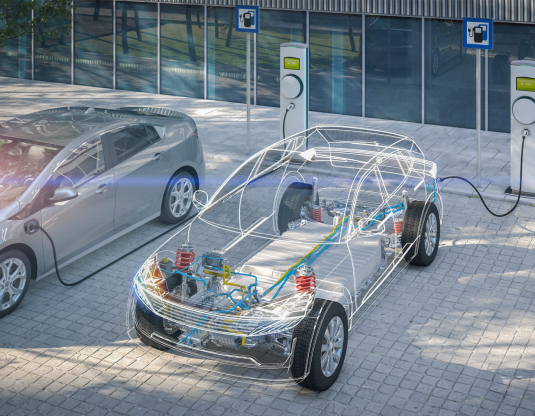

6. EVs are only good for ideal climates
Wrong, Norway, Iceland and Sweden lead Europe with EV adoption, Norway led the world in 2022 with 79.3% of new vehicles sold being plug-in, Sweden came 2nd with 33%, and Iceland 3rd with 30.7%. These three countries have far from ideal climates with famously cold winters but that hasn’t stopped them leading the world in EV adoption.
7. EV Cars, there’s hardly any choice
In 2011 there were 9 electric vehicles available, as of August 2023 there are over 200 fully Electric Vehicles available, as well as over 80 Plug In Hybrid (PHEV) vehicles available.
8. There aren’t enough public charging stations in Britain
In 2016 we had just over 5,000 public charging points, as of August 2023 we had just over 45,737 public charge points at 26,805 locations.
If you run a business with a car park open to the public, you could be able to offer charging as a service for your customers – talk to our specialists to find out more. Call 0333 123 5464.
9. The electricity grid won’t be able to handle the increase in electric vehicles
It’s important to remember that the move to EV is happening gradually, not overnight. Renewable energy sources are continually being developed to supply more green, clean, and efficient electricity to handle the rise in demand.
The government has introduced Electric Vehicle Smart Charge Points Regulations, which ensure that EV charge points will have smart functionality; allowing the charging to happen when there is less demand on the grid, or when more renewable (and therefore often cheaper) electricity is available. This means that no matter what time you plug in your car, it will charge when you need it but can automatically pause during those peaks when demand on the grid is highest and energy is most expensive.
A considerable amount of electricity is used to refine oil for petrol and diesel, so as we use less petrol or diesel cars, some of that electricity capacity could become available.
10. There isn’t enough lithium in the world to make all the new batteries
Lithium is a relatively abundant element on Earth, current estimates have total reserves believed to be around 17-20 million tons. With EV adoption increasing the rate of lithium production will need to increase significantly. However, it’s worth bearing in mind, that unlike fossil fuels, lithium is a recyclable material and technology is developing to help use lithium from used batteries to further extend its availability.
If you decide to switch over to an electric vehicle, you’ll need to charge it, we recommend our top-selling electric vehicle home charger, the Easee One EV Home Charger. It’s small, smart, powerful, easy to install, easy to use, and at a competitive price. Easee has done everything to make it as easy as possible to choose a home EV charger.
With UK stock ready for next-day delivery across Easee’s latest range of EV chargers, ready-to-go installation kits, and accessories, all combined with the best prices and advice – we are here to help.

